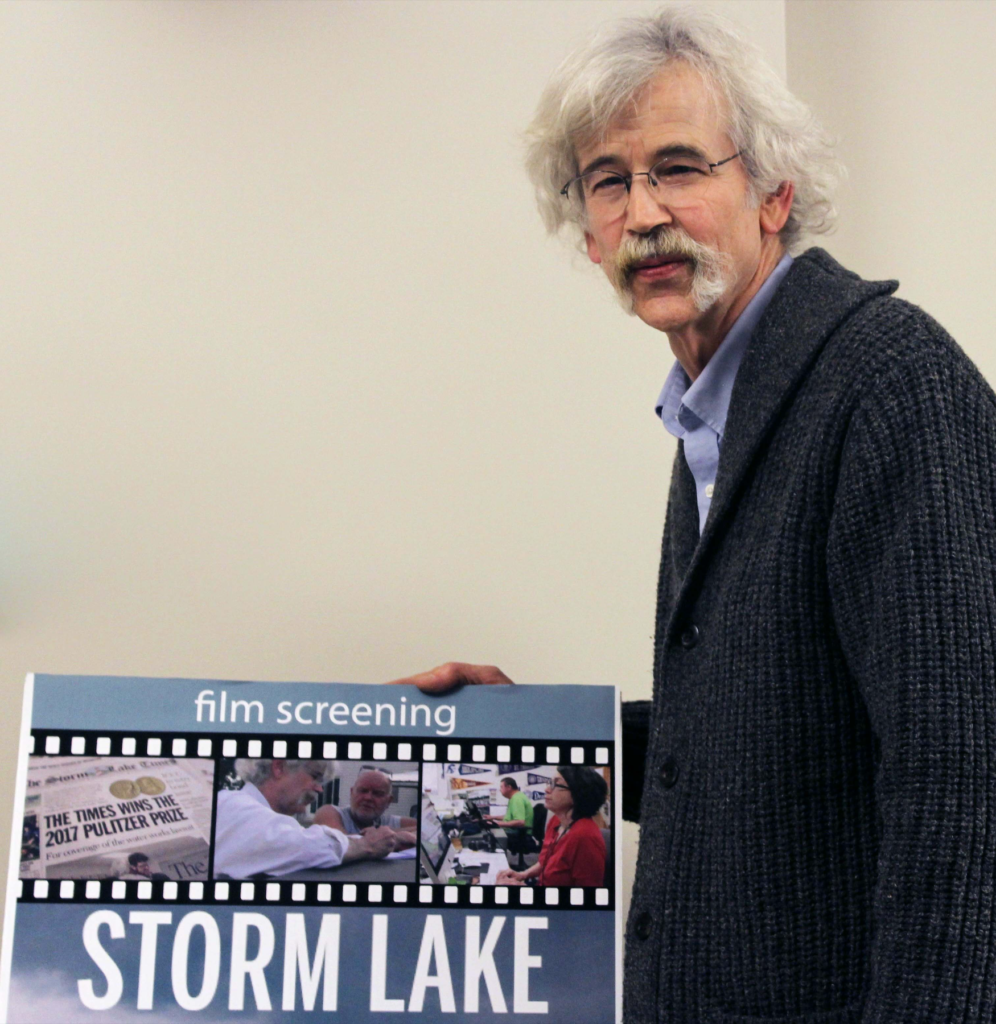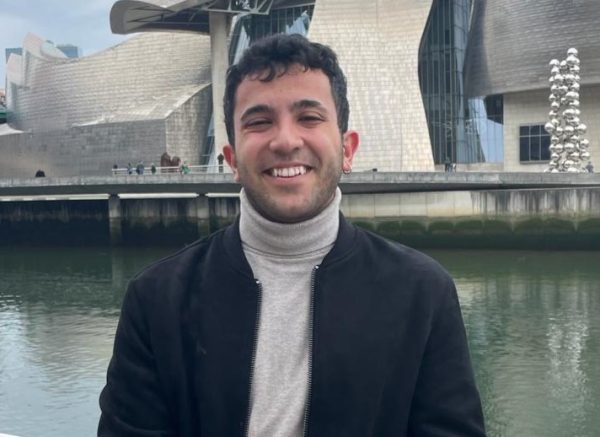In a world of increasing difficulty for small papers, journalists like Pulitzer Prize-winner Art Cullen stand out for their dedication to covering local news.
As Cullen, editor of The Storm Lake Times in Storm Lake, Iowa, says in the highly acclaimed documentary “Storm Lake:” “without strong local journalism to tell a community’s story, the fabric of the place itself becomes frayed”.
Cullen, who’s been running The Storm Lake Times for over three decades, visited Grinnell on Saturday, Feb. 12 to attend the screening of the documentary and answer some of the community’s itching questions.
“Storm Lake” tells the story of a small Iowan town and family-run paper that was able to defy odds and win a Pulitzer Prize for its honest and often bold reporting.
The paper caught the public’s eye following a series of forthright 2016 editorials that covered the Des Moines Water Works’ lawsuit against three northwestern Iowa counties over toxically high nitrate levels in the Raccoon River.
The newspaper investigated secret funds being used to defend the counties from the lawsuit and reported on the corporate donors who had been trying to keep the crisis a secret. “We made the argument that whoever’s been financing it must have also been pulling the strings,” said Cullen.
Not all communities are lucky enough to have local newspapers, let alone honest reporting on day-to-day matters. Such newspapers have been hit hard by the digitization and corporatization of news, and most recently the COVID pandemic, with thousands shutting down in just a few years.
“We were going broke and were ready to shut down during the pandemic,” said Cullen.
There are now more than 1,300 news deserts, communities where residents have no access to local news and papers, in the U.S.
“When I started out in this business, there were newspapers so fat, you can barely lift them. Now, there are no newspapers at all and rural communities are a lot weaker than they used to be,” said Cullen in the film.
But not all hope is lost in the fight against the “death of rural Iowa.” Cullen explains how “there’s a lot of entrepreneurial young journalists who are trying to rebuild journalism from the ground up and at the community level” and that “there’s hope for journalism and democracy, but we’ve got to take hold of it.”
During the Q&A after the screening, he said, “We’re all fed up with this fancy world of fear, division and violence. It’s about time we buck up, subscribe to local newspapers and support democracy.”
Cullen is not opposed to the digitization of news — he believes “we’ve got to eventually go where the readers are, where the eyeballs are, and that’s on cell phones. We’ve got to make that expensive digital transformation.”
With over 30 languages and dialects spoken in Storm Lake, Cullen is also a staunch proponent of immigration and its benefits to the community as a whole. To help immigrants settle, he believes “the first thing we can do is call them neighbors.” He continued: “you don’t have to speak Spanish just to smile at somebody.”
Barbara Trish, political science professor and director of the Rosenfield Program which coordinated and publicized this event, believes the film “tells a powerful story on the importance of community journalism and the role of local journalists.” She said, “It’s a reminder to explore place, take a moment, get out, and break free of the things that consume us and rather observe firsthand the issues in our communities.”
Trish also explains how “the questions at the end reflected a community of people who were thinking carefully and deeply.”
Maddy Gummer `24, committee member at the Rosenfield Program, was also tasked with planning the event and was happy with “the great turnout” and how “small-town Iowa really shows up for small-town Iowa.”
“Humanizing news can really bring communities to life and raise voices and stories that would otherwise not be heard,” Gummer said. “Hearing and staying on top of local issues is how you keep a democracy accountable”.
After all, as Cullen says: “Everybody has to take hold of democracy and we’ve got to start chopping down the lies and get behind the vendors who are telling the truth.”
“You can change the world through journalism. That’s the only good reason to get into this trade because when you’re looking for a friend, remember, the dog can’t read.”






































































